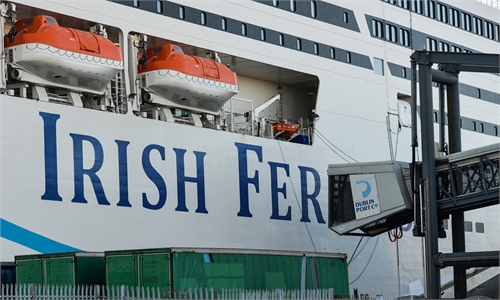Already grounded by the coronavirus pandemic, airlines operating in the UK are facing post-Brexit obstacles to flying across the European Union, and their shareholders are paying the price.
The trade agreement reached ahead of Britain's recent formal divorce from the EU allows flights between the two to continue as before.
But for airlines with fewer than 50 percent EU-based shareholders, flights within the EU require a new agreement by the end of 2021.
No-frills airlines, such as Ryanair and EasyJet, are notably affected, with their business models based heavily on flying customers across the EU, such as French and German tourists to holiday destinations in Spain and Greece.
"There has been sufficient time to prepare" for the changes, said independent aviation analyst John Strickland, with Britain voting in favor of exiting the EU 4.5 years ago.
However the required changes in shareholder ownership "adds additional cost and complexity," he said, at a time when the global aviation sector is suffering huge losses on COVID-19 fallout.
Alongside limiting non-EU ownership to less than 50 percent, British Airways-parent IAG has decided that the majority of its independent executives must be from within the bloc.
While EU stakeholders currently own a combined 47.5 percent of EasyJet, just short of the threshold, the airline has yet to force sales of its shares.
Airlines have already incurred costs over the need for new operating licenses to continue flying in Britain and the EU in the wake of Brexit.
The trade agreement reached ahead of Britain's recent formal divorce from the EU allows flights between the two to continue as before.
But for airlines with fewer than 50 percent EU-based shareholders, flights within the EU require a new agreement by the end of 2021.
No-frills airlines, such as Ryanair and EasyJet, are notably affected, with their business models based heavily on flying customers across the EU, such as French and German tourists to holiday destinations in Spain and Greece.
"There has been sufficient time to prepare" for the changes, said independent aviation analyst John Strickland, with Britain voting in favor of exiting the EU 4.5 years ago.
However the required changes in shareholder ownership "adds additional cost and complexity," he said, at a time when the global aviation sector is suffering huge losses on COVID-19 fallout.
Alongside limiting non-EU ownership to less than 50 percent, British Airways-parent IAG has decided that the majority of its independent executives must be from within the bloc.
While EU stakeholders currently own a combined 47.5 percent of EasyJet, just short of the threshold, the airline has yet to force sales of its shares.
Airlines have already incurred costs over the need for new operating licenses to continue flying in Britain and the EU in the wake of Brexit.

